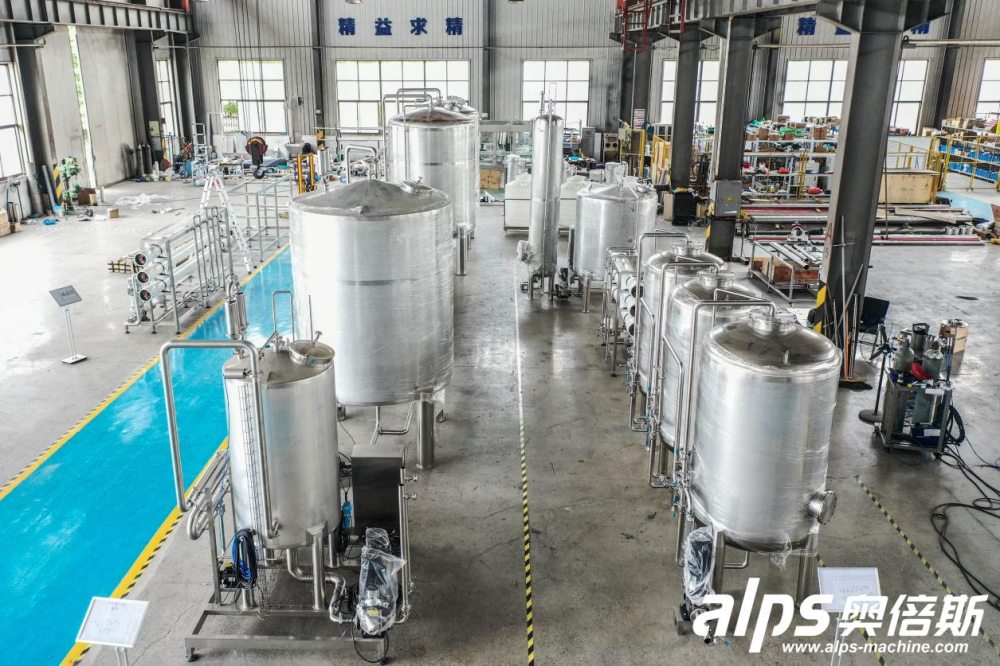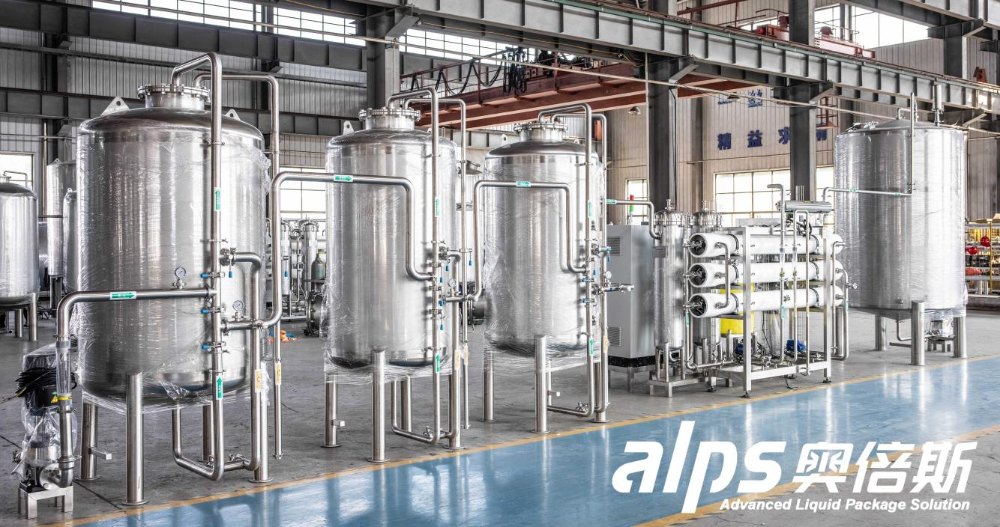Advanced Liquid Package Solution
Water treatment plays a crucial role in ensuring the safety and quality of the water used in various industries, particularly in the beverage sector. As consumer demand for high-quality drinking water continues to grow, understanding the differences between pure water treatment systems and mineral water treatment systems becomes increasingly important. In this article, we will explore the characteristics, treatment processes, advantages, and applications of both systems to help you make an informed decision on which system best suits your needs.

Pure water refers to water that has been treated to remove almost all dissolved solids and impurities. This is typically achieved through advanced filtration techniques, including reverse osmosis (RO), deionization (DI), and distillation. Pure water is used primarily in industries where water must be free from minerals and contaminants to avoid interference with delicate processes.
A typical pure water treatment system involves several stages:
Filtration: To remove larger particles and debris.
Reverse Osmosis: A membrane filtration process that removes most dissolved solids, including salts, minerals, and contaminants.
Deionization (DI): This process removes remaining ions, leaving the water completely free of minerals.
Pharmaceuticals: Pure water is used in drug manufacturing to prevent contamination of sensitive compounds.
Cosmetics: It is required in the production of lotions, creams, and other personal care products.
Laboratories: Pure water is needed for various chemical and biological experiments.
Industrial Processes: Certain manufacturing processes, such as semiconductor production, require water that does not contain any minerals that could disrupt the process.
High Purity: Pure water systems provide water that is free from virtually all impurities, making it suitable for sensitive applications.
Customization: The system can be adjusted to meet specific purity levels required for different industries.
Consistency: Pure water treatment ensures that the water quality is consistent across every batch.
Lack of Minerals: Pure water is devoid of minerals, which makes it unsuitable for direct consumption unless remineralized.
High Energy Consumption: The processes involved in producing pure water, especially reverse osmosis, can be energy-intensive.
Cost: The initial setup cost and maintenance for pure water treatment systems can be higher compared to mineral water systems.

Mineral water contains naturally occurring minerals, such as calcium, magnesium, and potassium, which contribute to its distinctive taste and health benefits. While the treatment process for mineral water involves purification to remove contaminants, it focuses on preserving and enhancing the natural mineral content of the water.
Mineral water treatment systems typically include:
Filtration: To remove larger particles and suspended solids.
UV Treatment: Ultraviolet light is used to disinfect the water and eliminate harmful microorganisms.
Carbon Filtration: This step removes chlorine, odors, and other unwanted substances without removing the beneficial minerals.
Mineral Enhancement: In some cases, additional minerals are added to improve taste or nutritional value, but the core goal is to maintain the natural mineral composition of the water.
Bottled Water: Mineral water is primarily bottled for human consumption and is sold in the beverage market.
Health and Wellness: Due to its mineral content, mineral water is often marketed as having potential health benefits, such as promoting bone health, improving digestion, and replenishing electrolytes.
Sports and Fitness: Athletes and fitness enthusiasts often prefer mineral water for its hydration and health benefits.
Health Benefits: The minerals in the water contribute to a range of health benefits, including hydration, electrolyte balance, and improved bone health.
Taste: Mineral water has a distinct taste, which many consumers prefer over pure water due to its naturally occurring minerals.
Natural Composition: Since the minerals are naturally present in the water, the treatment process focuses on maintaining the water's original quality.
Higher Costs: The process of preserving natural minerals while treating the water can be more expensive than purifying water for industrial uses.
Limited Customization: Unlike pure water systems, mineral water systems do not allow for the removal of specific minerals, making it less customizable for different applications.
Contaminant Removal: While mineral water systems purify water, there may be limitations in removing all contaminants, especially in waters with high levels of impurities.

Feature | Pure Water Treatment System | Mineral Water Treatment System |
Water Composition | Free from dissolved solids and minerals. | Contains natural minerals like calcium, magnesium, and potassium. |
Treatment Focus | Removes all impurities and minerals. | Preserves and enhances natural mineral content while removing contaminants. |
Taste | Neutral, without any taste due to lack of minerals. | Distinct taste due to the presence of natural minerals. |
Health Benefits | No health benefits, unless remineralized. | Provides health benefits due to minerals that support hydration and overall wellness. |
Applications | Pharmaceuticals, cosmetics, industrial processes. | Bottled drinking water, health-conscious consumers, sports drinks. |
Cost | Higher operational costs due to advanced filtration methods. | Higher production costs due to the need to preserve minerals. |
Customization | Highly customizable based on purity requirements. | Less customizable in terms of mineral composition. |
When choosing between a pure water treatment system and a mineral water treatment system, consider the following factors:
Intended Use: If you are in an industry that requires ultra-pure water for manufacturing or scientific purposes (e.g., pharmaceuticals, cosmetics, electronics), a pure water treatment system is the best choice. However, if your goal is to produce bottled drinking water for consumer consumption, a mineral water treatment system is more suitable.
Health and Taste Preferences: If your target market values the health benefits and taste of natural minerals, a mineral water system is the better option. On the other hand, pure water is neutral in taste and may not appeal to consumers who prefer the enhanced flavor of mineral water.
Budget and Maintenance: Mineral water treatment systems typically involve higher initial costs but may be more sustainable for long-term bottled water production. Pure water systems, although more energy-efficient in some cases, require more advanced and expensive technology for purification.
Both pure water treatment systems and mineral water treatment systems serve different needs in the water purification industry. Pure water systems are ideal for applications that require high levels of purity, such as pharmaceuticals and industrial processes, whereas mineral water systems are perfect for bottled water intended for human consumption, offering natural minerals and health benefits. Understanding the differences between the two will help you make the best choice for your business or personal needs.
If you are considering implementing a water treatment system for your business, it’s essential to consult with professional water treatment system supplier who can recommend the right system based on your specific requirements. For more information or to request a consultation, don’t hesitate to contact ALPS machine today!

By continuing to use the site you agree to our privacy policy Terms and Conditions.